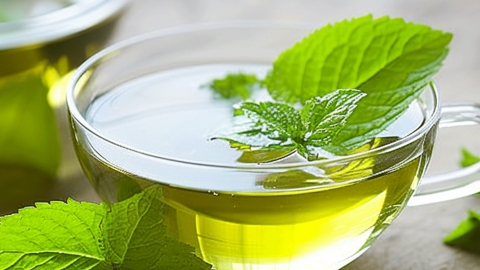Which three types of people should avoid consuming mint leaves?
There is generally no specific claim about which three types of people should not consume mint leaves. However, individuals with deficiency-cold of the spleen and stomach, qi deficiency with excessive sweating, yin deficiency with blood dryness, pregnant women, and those with allergic constitutions may experience adverse reactions after consuming mint leaves. Detailed explanations are as follows:

1. Individuals with deficiency-cold of the spleen and stomach: Mint leaves are cold in nature. Those with deficiency-cold of the spleen and stomach already suffer from insufficient yang qi. Consuming mint leaves may further deplete the yang qi of the spleen and stomach, potentially causing symptoms such as abdominal pain, diarrhea, and exacerbating the weakness of the spleen and stomach, impairing normal digestive function. Long-term consumption may lead to digestive and absorptive disorders, endangering health.
2. Individuals with qi deficiency and excessive sweating: People with qi deficiency often exhibit symptoms such as physical weakness and spontaneous sweating. These individuals need to protect their superficial yang qi. Mint leaves have a dispersing effect; consuming them may cause excessive perspiration, further depleting vital energy and worsening qi deficiency, making the body even weaker and hindering recovery.
3. Individuals with yin deficiency and blood dryness: Yin deficiency and blood dryness are often caused by insufficient body fluids and internal deficiency heat. These individuals commonly experience symptoms such as dry mouth and throat and dry skin. Mint leaves are cool in nature and have a dispersing effect; consuming them may accelerate the depletion of body fluids, aggravating yin deficiency and deficiency heat, thereby worsening discomfort symptoms.
4. Pregnant women: Pregnant women have a unique physical condition. Ingredients in mint leaves may stimulate the uterus, especially during early pregnancy when fetal development is not yet stable. Consuming mint leaves may trigger uterine contractions, affect normal fetal development, and in severe cases, even lead to miscarriage, endangering maternal and fetal safety.
5. Individuals with allergic constitutions: People with allergic constitutions have a sensitive immune system. Certain components in mint leaves may act as allergens. Consumption may easily trigger allergic reactions, mild cases presenting as rashes and itching, while severe cases may involve symptoms such as rapid breathing and throat swelling, endangering life and health.
Before consuming mint leaves, one should first understand their own physical condition. If unsure whether it is suitable for consumption, consult a professional physician. Discontinue use immediately if adverse symptoms occur. In cases of severe allergic reactions, seek timely medical treatment to avoid delaying the condition.










